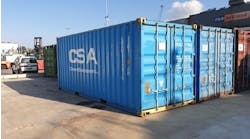Financial assurance requirements, low oil prices increase pressure on offshore lessees
Larry W. Nettles
Larry J. Pechacek
Vinson & Elkins, LLP
Oil and natural gas E&P companies operating on the outer continental shelf (OCS) are awakening to the unwelcomed realization that supplemental bonding waivers will soon be a thing of the past. The Bureau of Ocean Energy Management (BOEM) is expected to formally issue its new notice to lessees and operators (NTL) on supplemental bonding procedures no later than early summer 2016. The past practice of being exempted, or “waived,” from certain offshore decommissioning obligations will come to an end.
While elimination of the waiver practice represents a potentially onerous burden for oil and gas companies accustomed to such exemptions, this change is not expected to be implemented immediately. The NTL will likely take effect 60 days following its issuance. In addition, the NTL will call for a tailored plan, to be developed by the operator and submitted to BOEM for approval, which explains how the company will achieve the required supplemental bonding. Only then, following approval of the plan, will supplemental bonds be required.
Currently, the bureau envisions that bonding amounts owed by OCS lessees and operators will be posted in approximately equal installments 120 days, 240 days, and 360 days after approval of the tailored plan. Thus, it could be upwards of 18 months before these supplemental bonding amounts must be paid in full.
Unfortunately, the price of oil has been in sharp decline since mid-2015, and with this erosion in commodity pricing, there is a corresponding loss in company net worth. Currently, issuance of a waiver depends, in part, upon a company’s net worth. For an operator currently waived from supplemental bonding for its decommissioning obligation, a decline in net worth could result in that company no longer being able to satisfy the requirements upon which the waiver was first granted.
Upon a determination by BOEM that an operator no longer satisfies the relevant financial strength and reliability criteria, the likely outcome is that the bureau will revoke the supplemental bonding waiver and require the company to post additional financial assurance.
With the threat of BOEM potentially taking action in the near term to revoke a waiver, how can an OCS operator act now, to be in the best position for future negotiations with BOEM on the posting of supplemental bonds?
There are several proactive measures that all oil and gas companies may take. These steps focus on obtaining a valid snapshot of an operator’s decommissioning obligation, based on its actual, real-time operations occurring on the OCS. BOEM relies upon joint and several liability concepts relative to co-lessees and holders of operating rights in assessing a particular company’s decommissioning obligations vis-à-vis its co-lessees or holders of operating rights. Nonetheless, the trick is to accurately demonstrate to the satisfaction of the bureau the relative obligations of each of the liable parties with respect to decommissioning activities.
As a practical matter, BOEM (or, for that matter, the federal Bureau of Safety and Environmental Enforcement, or BSEE, as it relates to the estimation of decommissioning obligations on the OCS) has neither the staff nor the resources to revisit or reconfirm what decommissioning obligations may be incurred by an OCS operator beyond what is initially assessed, absent a clear trail documenting changes in these liabilities. Consequently, it is incumbent upon the operator to determine what its actual decommissioning obligations are (or should be) and take the necessary steps now to rectify any inaccuracies in BOEM or BSEE files. Many of these tasks may seem relatively straightforward but are often taken for granted or overlooked.
Step one.Confirm that the company’s asset base (including associated working interests amongst those assets) on the OCS and associated working interests are properly reflected in BOEM’s records.
Important issues to verify include:
- Are all lease interests properly reflected in the Bureau’s records?
- Have all assignments of leases by the company to third parties been correctly addressed in the Bureaus’ records?
- Are the relative working interests of those leases (including both operated and non-operated by the company) properly reflected in the Bureau’s records?
This task is necessary to ensure that both the company and BOEM are comparing and contrasting the same asset base and working interests associated with those OCS properties.
Step two.Confirm what supplemental bonds are held by the oil and gas company and whether those bonds are properly reflected in the bureau’s records.
Here, an energy company should review internal and BOEM records to determine whether there are any gaps in bonding coverage or any “double-bonding” of properties. For leases where there are co-lessees or multiple holders of operating rights, care should be taken to confirm what financial assurances are in place for which parties in order to address the decommissioning obligations of those leases.
Step three.Confirm that errors, discrepancies, or other disputed items identified by the company are resolved with BOEM.
If errors, discrepancies or other disputed items are identified by an operator, those matters should be brought to the attention of BOEM and corrected and/or resolved.
For example, an energy company may have assigned certain leases to a third party, and the assignment was approved by BOEM, but the bonds were never released by BOEM, then the company will want to request changes to BOEM’s records. Otherwise, decommissioning obligations based on incorrect or incomplete records will result.
Step four. Evaluate the decommissioning obligations determined by BSEE and consider whether an independent evaluation of those liabilities is necessary.
BSEE, not BOEM, is charged with estimating the decommissioning obligations for an operator’s leases and other interests on the OCS. However, an energy company may have concerns as to how BSEE prepared the initial estimated amount or whether those estimates should be revised downward based on new information beneficial to the company (e.g., cheaper labor or supplies, newer technologies or methods for decommissioning).
Compounding the problems described above are demands made by surety companies for the provision of additional collateral to bolster the bonds issued by those or other surety companies on behalf of the OCS lessees and operators.
The ability of a company to post additional collateral under circumstances where its assets are already mortgaged may present a significant issue, and likely may force the company to seek relief from its credit facilities. This would likely reduce the amount of borrowings available under such credit facilities to use in exploration and production activities.
The alternative is bleak, as any failure to post the necessary added collateral may result in default under the surety agreements, which in turn could result in loss of the associated bond coverage provided to BOEM.
The authors
Larry W. Nettles is the Environmental and Natural Resources Practice Group Leader at Vinson & Elkins.
Larry J. Pechacek is a Counsel in the Environmental and Natural Resources Practice Group Leader at Vinson & Elkins.





